Four album reviews for The Weekend Australian, published in February 2013.
++
PVT – Homosapien
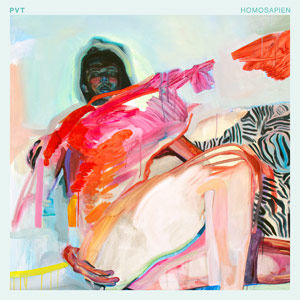 Three stylistic decisions have shifted Sydney act PVT – formerly known as Pivot – from a great band to a good one.
Three stylistic decisions have shifted Sydney act PVT – formerly known as Pivot – from a great band to a good one.
Church with No Magic, from 2010, saw the trio add lyrics for the first time, largely abandoning guitar and bass in favour of synthesisers, and downplaying live drums in favour of electronic beats.
Their fourth album, Homosapien, extends these three traits even further: the majority of the album is arranged and played electronically. Richard Pike retains the vocal duties he assumed on Church. His voice is powerful and well-suited to this music, but the content is dubious: many choruses consist only of one phrase, repeated.
There are flashes of lyrical brilliance, as in the evocative first lines of ‘Electric’: “I left my heart on the railroad track, it’s still waiting for the next train/ I didn’t clock into work today, now all my work is in vain”). Pike’s brother, Laurence, is one of the most distinctive drummers in this country, yet his stick work here is either restrained or replaced by a drum machine.
The band’s strength is in its electronic backbone, arranged by Dave Miller. The songs are clear, without many overdubs, and there are a handful of great moments: ‘Love & Defeat’, with wall-to-wall bass synths offset by a glorious, cutting melody, and the title track, which is the album’s only guitar-led track.
The 2008 instrumental album O Soundtrack My Heart remains the band’s crowning achievement, a thrilling combination of rock muscle and electronic beauty. Homosapien is the sound of these three men running in the opposite direction, with mixed results.
Label: Create Control
Rating: 3 stars
++
Foals – Holy Fire
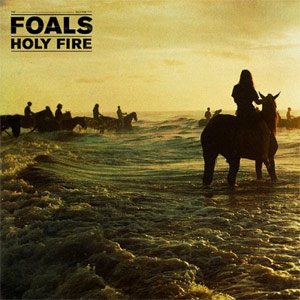 By merging dance-floor beats with finicky guitar theatrics on their 2008 debut album, Antidotes, this British band emerged with a singular vision.
By merging dance-floor beats with finicky guitar theatrics on their 2008 debut album, Antidotes, this British band emerged with a singular vision.
The result was one of the most compelling recent contributions to the math-rock subgenre. Total Life Forever (2010) saw the quintet leaning more towards indie pop, experimenting with atmospheric tricks, and pushing Yannis Philippakis’s voice higher into the mix; handy, as he has both striking tone and unique phrasing.
Holy Fire finds the band consolidating this new-found pop aesthetic while accentuating the intricate percussive and guitar interplay that first set them apart. Still in their mid-20s, Foals are almost old hands at this game. Production by British duo Flood (U2, Smashing Pumpkins) and Alan Moulder (Nine Inch Nails, the Killers) certainly works in the band’s favour, as the album sounds a million bucks.
There’s plenty to like about the first two singles – the metallic chorus riffs of ‘Inhaler’ and the sheer joy of ‘My Number’, their poppiest song yet – but, like Total Life Forever, this is a collection to be enjoyed as a whole.
Some of the band’s finest work appears on the second half: notably the stirring strings that run through ‘Milk & Black Spiders’ and the staccato bombast of ‘Providence’. Even long-favoured studio techniques, such as double-tracking and adding reverb to Philippakis’s vocals, continue to sound fresh against the innovative ideas laid down by his bandmates.
Holy Fire opens with a storming, four-minute instrumental, ‘Prelude’, that works well as a statement of intent; the following 10 tracks do nothing to erode that mood. At a touch under 50 minutes, that’s quite an achievement.
Label: Warner
Rating: 4 stars
++
my bloody valentine – m b v
 It takes a long time to make music sound as good as m b v does. About 22 years, in fact.
It takes a long time to make music sound as good as m b v does. About 22 years, in fact.
The last time my bloody valentine released new music was in 1991 and Loveless, the Irish quartet’s second album, remains the high-water mark of the “shoegaze” alternative rock movement.
A thrilling listen from top to tail, Loveless contained some of the most unbelievable guitar sounds heard then or since. It’s had all sorts of adjectives thrown at it through the years but the most appropriate is “peerless”.
And so, m b v, a nine-track album sneak-released online in early February, took by surprise many of the band’s fans.
Topping the last effort is a practically insurmountable feat, yet this collection must inevitably be compared with the band’s last. So, in short: no, m b v isn’t quite as earth-shattering as Loveless, but it’s still very good, and well worth your attention.
The guitar tone and phrasing are phenomenal: the second track ‘only tomorrow’ (the band insists that their name, album and song titles are all to be written in lower case) is one of the band’s finest creations, a real marvel of layering and repetition.
As with Loveless, the drums, bass and vocals are all secondary in importance to the guitars, which sound so sharp they might cut you in half if you turn the sound up loud enough. And you should. The band’s entire existence is practically an exercise in volume control. ‘in another way’ is the best song here; a modern update to Loveless‘s classic final track, ‘Soon’, if you will.
There’s only one disposable track, the synth-led ‘is this and yes’. The rest? Peerless, still.
Label: Independent
Rating: 4.5 stars
++
Hungry Kids Of Hungary – You’re A Shadow
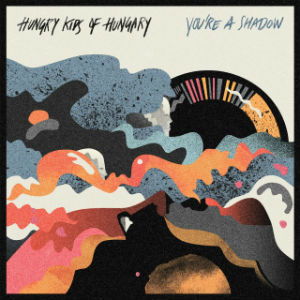 Hungry Kids of Hungary’s 2010 debut, Escapades, gave a strong portent of the songwriting and musical ability lurking within.
Hungry Kids of Hungary’s 2010 debut, Escapades, gave a strong portent of the songwriting and musical ability lurking within.
To its credit, You’re a Shadow supersedes the Brisbane pop quartet’s debut in every way. The band’s greatest asset is that each member is a master of their instrument. There’s no weak link; no bassist playing tired lines, no drummer tapping out predictable beats. Every note is chosen for the purpose of serving the song.
That may sound banal but in the context of indie pop it’s rare and remarkable to encounter such consistent innovation in the musicianship. For most bands, it’s enough to hit on a memorable vocal melody or guitar riff, and ride the hook out for three or four minutes. Not Hungry Kids.
These 11 songs crackle with verve. It’s clear these four have thrown everything they have into You’re a Shadow and the results speak for themselves. There’s not a weak track here. At a touch under 40 minutes, it’s a lean collection but the ideas on display never outlast their welcome. This is another sign of the band’s maturity: don’t overplay, don’t overwrite, don’t oversing. Guitarist Dean McGrath and keyboardist Kane Mazlin share vocals and writing duties. Their first co-write, ‘When Yesterday’s Gone’, is the finest song here: a simply beautiful four-minute jam about mourning lost time. ‘Memo’ is a close runner-up; the way it segues flawlessly from the previous track ‘Colours’ is a nice touch, but the interplay between Ben Dalton’s bassline and Mazlin’s delicate key phrasing is spectacular. Indie pop music doesn’t get much better than this. Highly recommended.
Label: Stop Start
Rating: 4.5 stars
About 3 ½ minutes into the first track, ‘Under the Pressure’, is when it first becomes apparent that Lost in the Dream may be a masterpiece: a muscular brass melody seeps into the mix, mimicking the chord progression and adding a new urgency to an already brisk tune. Its final three minutes are free of percussion; instead, waves of shimmering guitar tones and bass harmonics slowly fade out, to stunning effect. It’s one hell of a mood-setter that summarises the album’s pervasive feel of hazy discontent tinged with brightness.
 The music made by the four members of Los Angeles indie rock act Warpaint rarely contains hard edges.
The music made by the four members of Los Angeles indie rock act Warpaint rarely contains hard edges. Eight players make up Halfway, a rock band from Brisbane that injects banjo, pedal steel guitar, piano and mandolin into the genre’s usual instrumentation.
Eight players make up Halfway, a rock band from Brisbane that injects banjo, pedal steel guitar, piano and mandolin into the genre’s usual instrumentation.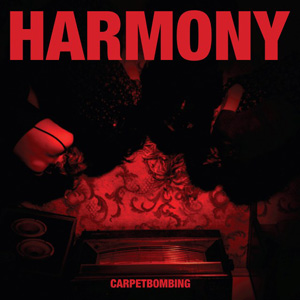 “I know I smell like petrol; smell like I’ve been sleeping rough / Like I’ve got on everything I own, no matter what the heat.”
“I know I smell like petrol; smell like I’ve been sleeping rough / Like I’ve got on everything I own, no matter what the heat.”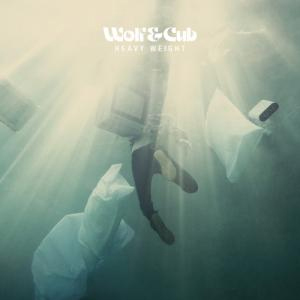 While Perth act Tame Impala has been flying the flag for Australian psychedelic rock since 2010, playing on American talk shows and at nearly every festival in the world, Adelaide quartet Wolf & Cub have been quiet.
While Perth act Tame Impala has been flying the flag for Australian psychedelic rock since 2010, playing on American talk shows and at nearly every festival in the world, Adelaide quartet Wolf & Cub have been quiet.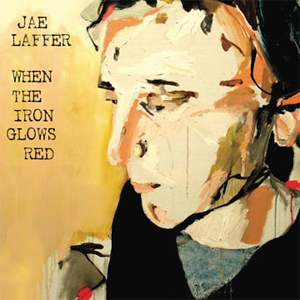 As frontman of Perth-born pop act The Panics, Jae Laffer is well regarded for his songwriting quantity and quality.
As frontman of Perth-born pop act The Panics, Jae Laffer is well regarded for his songwriting quantity and quality.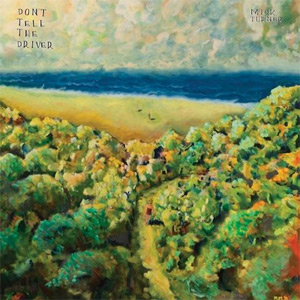 New work by one of Australia’s most distinctive guitarists is always worth a listen, and usually worth dwelling on at some length.
New work by one of Australia’s most distinctive guitarists is always worth a listen, and usually worth dwelling on at some length. ‘Yorta Yorta’, the opening track of this Sydney band’s debut album, is one of the most striking songs released this year.
‘Yorta Yorta’, the opening track of this Sydney band’s debut album, is one of the most striking songs released this year.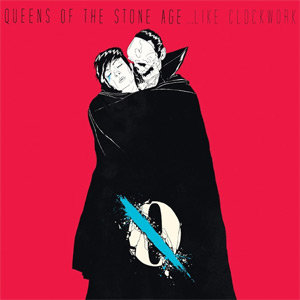 The sixth album from this Californian hard rock band solidifies its reputation for consistency. Though founding singer-guitarist Josh Homme is the only ongoing member, he has become known for attracting a rotating cast of accomplished players since the band’s self-titled debut in 1998.
The sixth album from this Californian hard rock band solidifies its reputation for consistency. Though founding singer-guitarist Josh Homme is the only ongoing member, he has become known for attracting a rotating cast of accomplished players since the band’s self-titled debut in 1998.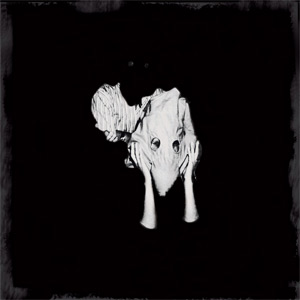 There are bands with distinctive sounds, and then there’s Sigur Ros. These Icelandic gentlemen have produced seven albums, including Kveikur (pronounced ‘quaker’, meaning candlewick in the mother tongue); and with each successive release they further distance themselves from any other act, past or present.
There are bands with distinctive sounds, and then there’s Sigur Ros. These Icelandic gentlemen have produced seven albums, including Kveikur (pronounced ‘quaker’, meaning candlewick in the mother tongue); and with each successive release they further distance themselves from any other act, past or present.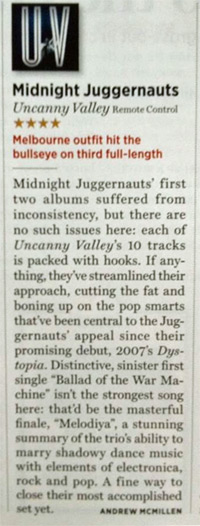 An album review for the July 2013 issue of Rolling Stone Australia.
An album review for the July 2013 issue of Rolling Stone Australia.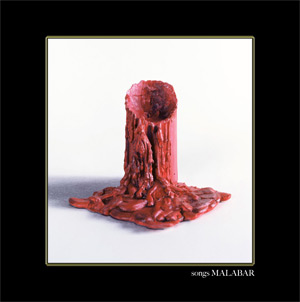 The second album by one of the least Google-friendly bands is short in duration – 39 minutes all up – but long on quality ideas.
The second album by one of the least Google-friendly bands is short in duration – 39 minutes all up – but long on quality ideas.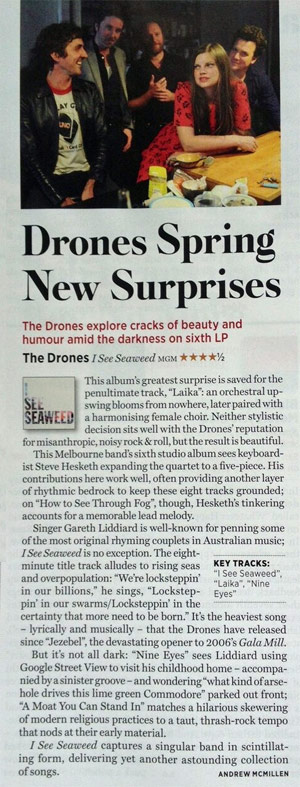
 Three stylistic decisions have shifted Sydney act PVT – formerly known as Pivot – from a great band to a good one.
Three stylistic decisions have shifted Sydney act PVT – formerly known as Pivot – from a great band to a good one. By merging dance-floor beats with finicky guitar theatrics on their 2008 debut album, Antidotes, this British band emerged with a singular vision.
By merging dance-floor beats with finicky guitar theatrics on their 2008 debut album, Antidotes, this British band emerged with a singular vision. It takes a long time to make music sound as good as m b v does. About 22 years, in fact.
It takes a long time to make music sound as good as m b v does. About 22 years, in fact. Hungry Kids of Hungary’s 2010 debut, Escapades, gave a strong portent of the songwriting and musical ability lurking within.
Hungry Kids of Hungary’s 2010 debut, Escapades, gave a strong portent of the songwriting and musical ability lurking within.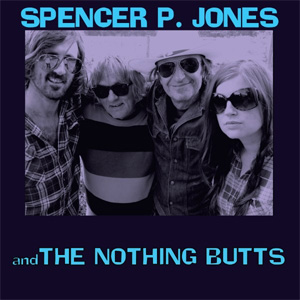 For Australian rock fans, this supergroup is a match made in heaven: two members from Beasts of Bourbon and two from The Drones combining to make a beautiful racket.
For Australian rock fans, this supergroup is a match made in heaven: two members from Beasts of Bourbon and two from The Drones combining to make a beautiful racket.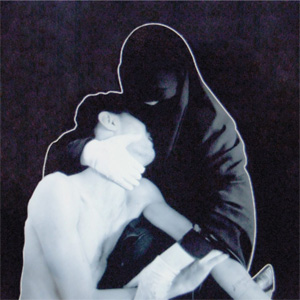 The third full-length album released by this young Canadian electronic duo lacks the immediate sonic punch that made their first two albums such compelling listens.
The third full-length album released by this young Canadian electronic duo lacks the immediate sonic punch that made their first two albums such compelling listens.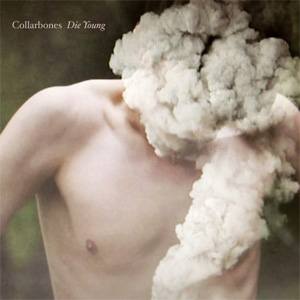 What we have here is an original and compelling take on pop music viewed through the lenses of electronica, R&B and hip-hop.
What we have here is an original and compelling take on pop music viewed through the lenses of electronica, R&B and hip-hop.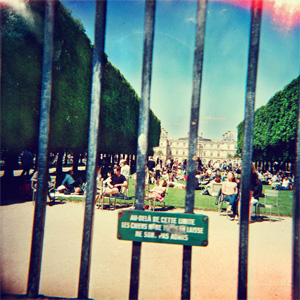 The trouble with releasing a killer debut album is that it’s much harder to impress with the follow-up.
The trouble with releasing a killer debut album is that it’s much harder to impress with the follow-up.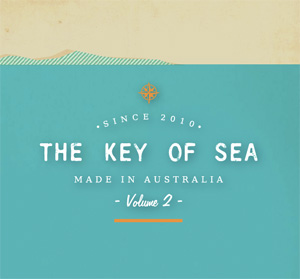 Some might say rock musicians are more readily associated with egotism than altruism, yet this collection is the second in a series that seeks to buck that stereotype.
Some might say rock musicians are more readily associated with egotism than altruism, yet this collection is the second in a series that seeks to buck that stereotype.